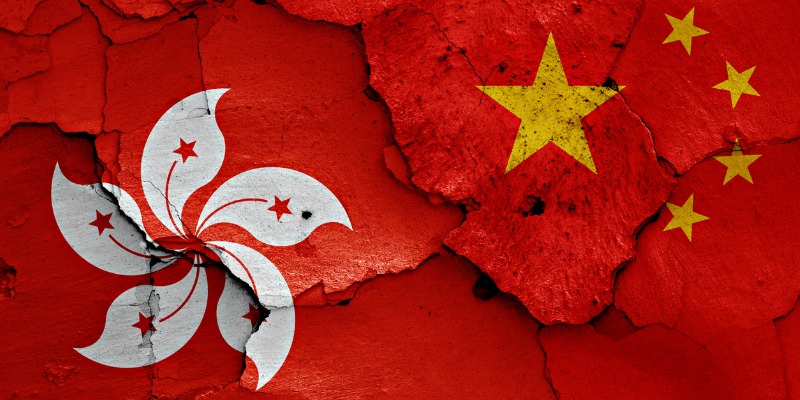Canada must push back hard against Chinese aggression in Hong Kong

The global response, including from Canada, to the Communist Party of China’s aggression against Hong Kong, has been far too muted. To “talk softly and carry no stick,” as Fen Hampson of the Norman Paterson School of International Affairs puts it, has accomplished nothing.
Last September, I gave the keynote address in Hong Kong on the rule of law at the gala Freedom Dinner 2019 sponsored by Hong Kong’s premier think-tank, the Lion Rock Institute. It was a glittering event with more than 200 attendees but it was really a premature wake, celebrating the soon to-be-departed rights and freedoms of the people of Hong Kong under the rule of law.
In 1997, the British ended Hong Kong’s 150-year-old colonial status and handed the city back to China under the “one nation, two systems” agreement that guaranteed Hong Kong’s autonomy and freedoms until 2047. Post-war, under British colonial rule, as much of the rest of the world turned to big and powerful government, Hong Kong limited the role of government and increased the economic freedom of its people. Hong Kong became the most economically-free jurisdiction on the planet.
This led to a huge spurt of growth and prosperity. Civil and personal freedom also blossomed (in fact, Hongkongers soon enjoyed the highest level of personal freedom in the world, according to the Human Freedom Index) since they were not dependent on government—or other powerful players—and were protected by a strong and impartial rule of law.
But almost as soon as the 1997 handover was completed, the Communist Party of China (CPC) looked for ways to undermine the “one nation, two systems” agreement while the people of Hong Kong pushed back and maintained their autonomy and freedom.
Now the CPC has lost patience. It recently ordered large-scale arrests of dissidents and imposed a security law, which attacks Hong Kong’s Basic Law (effectively, a freedom-protecting constitution) by bypassing Hong Kong’s Legislative Council. While details have yet to be released, the law is intended to allow mainland authorities to crush freedom in Hong Kong and extend absolute CPC rule.
Violence may follow. Pro-democracy demonstrators, young and old, Chinese, and the many other groups that populate Hong Kong, are unlikely to give up their hopes for their future or the future of their children and grandchildren. The CPC will respond almost certainly with increasing aggression.
Last year, I wrote that a physical attack on Hong Kong by mainland forces, an invasion of Taiwan, or other bad behaviour could get China expelled from the World Trade Organization, though I put the odds fairly low. The CPC’s aggression against Hong Kong and its extreme dishonesty in dealing with COVID-19 have greatly improved the odds of strong action.
U.S Secretary of State Mike Pompeo has told Congress that Hong Kong no longer deserves its special trade status as an autonomous region of China. "No reasonable person can assert today that Hong Kong maintains a high degree of autonomy from China, given facts on the ground," he said.
That means that the United States would treat Hong Kong the same way it does China and end special tariff treatment and visa-free travel. More fundamentally, it would shake the confidence of the city. Yet, pro-democracy activist Joshua Wong has urged other countries to follow the U.S. and reconsider Hong Kong's special trade status. Few have taken strong action. But Australia, the United Kingdom and Europe are talking tougher. And Asian neighbours fear the CPC’s aggression and claims in the region.
A strong global response to the CPC’s imperialistic behaviour is critical. When the CPC thinks it can get away with something or bear little cost, it marches on. Only a strong response to aggression has any hope of holding it at bay.
Canada, with 300,000 citizens in Hong Kong, should be at the front of the international effort. Prime Minister Trudeau says he’s “concerned” and called on China to have “constructive” talks with Hong Kong—that’s like asking the lion to have constructive talks with the lamb.
The great city of Hong Kong will suffer more in the coming months as the totalitarian thumb of the CPC presses down. The stronger we stand now, the more hope of persevering the miracle of Hong Kong, which rose from the ashes of the Second World War to the reach the highest levels of prosperity and freedom.


